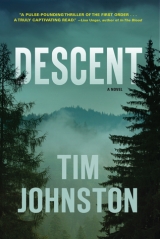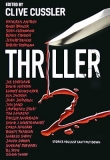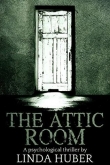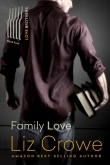
Текст книги "Descent"
Автор книги: Tim Johnston
Жанр:
Триллеры
сообщить о нарушении
Текущая страница: 1 (всего у книги 25 страниц)
DESCENT
a novel
TIM JOHNSTON

Algonquin Books
of Chapel Hill
2015
Also by Tim Johnston
Never So Green
Irish Girl
I dedicate this book to your daughters, and to mine.
What we chang’d
Was innocence for innocence; we knew not
The doctrine of ill-doing, nor dream’d
That any did.
–WILLIAM SHAKESPEARE
May she be granted beauty and yet not
Beauty to make a stranger’s eye distraught.
–W. B. YEATS
Contents
The Life Before
The Life to Come
Part I
1
2
3
4
5
6
7
8
9
10
11
12
13
14
15
16
17
18
19
20
21
22
23
24
Part II
25
26
27
28
29
30
31
32
33
34
35
36
37
38
Part III
39
40
41
42
43
44
45
46
47
48
49
Part IV
50
51
52
53
54
55
56
57
58
59
60
61
62
63
64
65
Part V
66
67
68
69
70
71
72
73
74
Acknowledgments
About the Author
About Algonquin
The Life Before
Her name was Caitlin, she was eighteen, and her own heart would sometimes wake her—flying away in that dream-race where finish lines grew farther away not nearer, where knees turned to taffy, or feet to stones. Lurching awake under the sheets, her chest squeezed in phantom arms, she’d lie there gasping, her eyes open to the dark. She’d lift her hands and press the watchface into bloom, blue as an eye in which blinked all the true data of her body, dreaming or awake: heart rate 86 bpm, body temp 37.8°C, pace (0), alt. 9,015 feet.
Alt. 9,015 feet?
She looked about the room, at the few dark furnishings shaped by a thin light in the seams of the drapes. To her left in the other bed lay her mother, a wing of blonde hair dark on the white pillow. In the adjoining room on the other side of the wall slept her father and brother. Two rooms, four beds, no discussion: she would not share a room with her fifteen-year-old brother, nor he with her.
The watchface burned again with its cool light and began to beep and she pinched it into silence. She checked her heart: still fast, but it wasn’t the dream anymore, it was the air at 9,015 feet.
The Rocky Mountains!
When she’d seen them for the first time, from the car, her heart had begun to pump and the muscles of her legs had tightened and twitched. In a few weeks she would begin college on a track scholarship, and although she had not lost a race her senior year (courtland undefeated! ran the headline), she knew that the girls at college would be faster and stronger, more experienced and more determined, than the girls she was used to running against, and she’d picked the mountains for no other reason.
In the bathroom she washed her face and brushed her teeth and banded her ponytail tight to her head and then stood staring into the mirror. It wasn’t vanity. She was looking to see what was in this girl’s eyes, as she would any girl, so she would know how to defeat her.
She stepped back into the room and for a moment she thought her mother was awake, watching her from the bed, but it was only the eyelids, pale and round in that dim light—a blind, unnerving effect, like the gazes of statues—and Caitlin opened the connecting door and stepped from one room into another exactly like it and shook the boy awake.
THE SUN WAS STILL climbing the far side of the mountains, and the town waited in a cold lake of shadow. The black bears that came down at night to raid the garbage bins and lope along the sidewalks had all gone back up. The streets were empty. No one to see the two of them passing under the traffic light, no one but them to hear the slow blink blink of its middle eye.
Caitlin was not yet running but high-stepping in a brisk pantomime of it, like a drum majorette for a parade consisting of the boy alone, wobbling along behind her on the rented bike. The boy wanted to go back for sweatshirts, but it was July, she reminded him, it would warm up.
His name was Sean but she called him Dudley, a long-ago insult which had lost its meaning. They’d come into town the day before, up from the plains on the interstate, up through Denver and then into the mountains on a swinging cliff of road that swung their hearts out into the open sky, into dizzy plungings of bottomless green, the pines so thick and small on the far slopes. Up and up they’d climbed, up to the Great Divide and then down again—down to nine thousand feet, where the resort village appeared suddenly in the high geography like a mirage. The wintry architecture of ski shops and coffeehouses at midsummer. Chairlifts hanging empty over the grassy runs. Impossible colors at this height and air like they had never breathed before.
Now, in the blue morning, they drew this air into their lungs and coughed up white clouds. The smell of pine was like Christmas. “Here we go,” Caitlin said, and she turned onto a road called Ermine and began to run in earnest, and the boy followed.
Not bad, he thought at first—wide, smooth blacktop with plenty of sky overhead. But then the road grew steep, the trees loomed denser and nearer, and the bike began to jerk in mechanical palsy as he cursed through the gears. He stood on the pedals and rode openmouthed, sucking at the air. Where his stomach overspilled his shorts the sweat ran hot and slick. Ahead on the black road the pale shape of her grew small and dim like some leggy and teasing sprite. “Slow down!” he called, at great cost of breath, and then fell to watching his own quivering thighs. It was snowshoes all over again:
Caitlin stomping out ahead of him on the lake and he slogging behind, the old wooden snowshoes colliding, tripping him—the lifeless heap of himself in the snow (the whole dark lake underneath, the thin floor of ice), red-cheeked Caitlin appearing suddenly and reaching down. C’mon, Dudley, stop screwing around . . .
When he looked ahead again she’d stopped, and he rode up to her, and planted his feet. “Jesus Christ, Caitlin . . .” Trying not to sound like a desperate, gasping fatty. His heart whopping.
“Shh,” she said. Her chest was heaving too but she was smiling. Her burning lungs, her banging heart, were ecstasies to her. Back home, across a wall of her room, track ribbons lay feathered like the wing of a brilliant bird. “Do you see it?” she said.
“What?”
“Up there.”
“What?”
“Just off the road. He’s right there.”
Then he saw it: a small red dog with a thick tail. But not a dog. Something wild, with black little eyes and huge, listening ears.
“What is it?” he said.
“I think it’s a fox.”
“What’s in its mouth?”
“I don’t know.”
“It’s a pup,” he said. “It must be her pup.”
“No, there’s blood.”
“So she killed it. They do that sometimes.”
They watched, the fox watching them, until at last it about-faced, the small body yet in its jaws, and went trotting up the road and was gone.
The boy swung the backpack around and rooted inside for the spouted bottles. Caitlin had stopped not because of the fox but because she’d come to an intersection and was unsure of the way. She remembered the young man at the bike shop with the oil-stained fingers (with the tattoo spider climbing his throat, with the very green eyes) saying there’d be signs, but there weren’t any, not here.
They squeezed cold water into their mouths and Sean removed his helmet and they unfolded the map between them.
“That way,” she said, and he looked up the narrow gravel road she indicated and shook his head. “That’s not right.” They promised to keep to the paved roads, the county roads, he said, and she looked at him: his red, serious face and the high, greasy bird crest of hair his helmet had styled. Hard to remember sometimes he was fifteen and not twelve, not ten, not seven.
She checked her heart and it was fast just standing still. Their altitude was 9,456 feet.
“Dudley,” she said, jamming her bottle back into the pack. “Did you rent a mountain bike so you could go tooling around on county roads?”
THE SUN HAD SPILLED into the valley, and a yellow blade of it opened a seam in the drapes and fell across the bed and across the eyes of the man who lay there sleeping. After a moment, the man turned away from the light and blinked the alarm clock into focus: 7:15.
A motel room. Colorado. To his right sat the other bed, empty and unmade.
In the bathroom, on the counter, the boy’s toothbrush lay in its puddle. The man, whose name was Grant Courtland, splashed and dried his face and returned to the room and parted the drapes. The sky was a pale early blue, a few thin clouds skimming the peaks. A beauty hard to believe in. A postcard. Some far-off bird rode the thermals, hovering there for the longest time before suddenly diving, bullet-shaped, into the trees. He watched to see if it would return to the sky but it didn’t.
He wasn’t sure where his kids were, geographically. It might be that near mountain there, those trees, which looked so close. The night before, they’d all bent over the maps, but Grant had not looked closely; it was their adventure to plan and carry out. In a few weeks Caitlin would begin college back in Wisconsin, on scholarship for track-and-field, and the mountains had been her idea, her choice, a graduation gift.
College. Already.
He stared into the distance until he thought he saw something—a wink of chrome, a flash of white running shoes. But there was nothing, of course, only the green and more green of the pines.
He picked up his cell phone and pressed a series of keys but then hesitated, his thumb hovering over the send button. The dream he’d been having came back to him—partially: a woman’s cool, exploring hand, that was all, but Lord.
He set down the phone and stared at it. After a minute he pulled on a pair of jeans, a T-shirt, and stepped barefoot into the adjoining room.
THE PATH GREW NARROWER, less a gravel road now than a kind of gully snaking up the mountain, and finally there was no gravel and no path but only this bald jawbone of rounded stones, like the dry bed of a seasonal stream shaped, year after year, by water’s only thought, which was to go down, always down, and never up.
“This isn’t right,” Sean yelled up the gully.
Ahead of him she kept going, leaping stone to stone like a goat.
He struggled on, wheezing, his body quaking and his jaw jibbering on its hinges until at last he said, “Fuck this,” and let the bike jolt to a stop, then let it fall to the stones as he staggered away.
“Caitlin!” he yelled.
He felt enormous and weightless, both. His legs took an unexpected step. Some flying thing struck his helmet, shrilled in the vents and sped away. “Bitch,” he said.
He picked up the bike and began fighting it over the stones, but in another moment he was attacked again—something under the pack now, buzzing against his back, and he dropped the bike and began to twist from the straps before he understood it was a phone, and by the time he had the pack off and the phone in his hand the buzzing had stopped. He watched the little window for the new message alert, but there was none. He checked his own phone, then dropped both phones back into the pack.
Then he picked hers out again. Stood a minute with the ruby heft of it in his hand, looked up the gully again—and then sat on a stone and punched up her text messages and read them. The most interesting thing was the names: Colby. Allison. Natalie. Amber. Lean, athletic girls who arrived in baggy shorts and tight, chesty tops to drink his Diet Cokes and stomp barefooted up and down the stairs. Girls who left impressions in the furniture and their scents in cushions and creases. Girls of constant texting and laughing and talking—always talking. The time he crouched outside the basement window and heard Allison Chow tell the other girls about her boyfriend’s big thing almost choking her. The time he walked in on Colby Wilson in the bathroom, bare-thighed on the toilet. Track shorts pushed to the knees.
Nice knock, tubs.
HE WAS CLOSER TO the top of the gully than he knew and when he reached it he found a road, another steep blacktop like the one they’d first been on. Or the same one. He found a sign that said CO RD. 153 and he found the sun on his hot neck and he found the silent pines and that was all. Uproad the blacktop made a right hook out of sight, and downroad it dropped away like a cliff. All of him, his every cell, wanted to go that way—down: the speed and the breeze and the long free ride on the back of gravity. But she wouldn’t do that, she wouldn’t go down, God damn her, and he turned the bike and stood on the pedals and began once more to climb.
He’d not gone far when something burst from the trees, so near and terrible he howled and leapt from the bike. It only lasted a moment before he heard that donkey-laugh of hers, and the blood came rushing to his face.
“God damn you,” he said.
“Oh God, Dudley, you should’ve seen your face!”
He lifted the bike from the blacktop.
“I never knew you could move so fast!” she said.
“I never knew you could be such a cunt,” he said.
She stopped laughing. And into that new silence dropped a man’s voice—from nowhere. From everywhere. In a moment it broke decidedly over the rise below them and with it came two figures, helmeted and hunched over their bikes, a man and a woman. The man stopped talking when he saw them, and he and the woman came on in winded silence, their faces uplifted and bright. The woman was younger than the man, she might’ve been Caitlin’s age, and she gave Sean a smile. One of the man’s lower legs was not a real leg but a black post locked into a special pedal, so that it was hard to say where the bike ended and the man began. He said Howdy and Sean said Howdy back. When they’d rounded the bend and were gone again, Caitlin said:
“What did you call me?”
Her face was burning. So was his.
“Christ, Caitlin. I was looking for you. We were supposed to keep an eye on each other.”
She regarded him darkly. Then she looked away and shook her head. She adjusted the band at the root of her ponytail and came forward and he flinched, and she told him she did have her eye on him, she knew exactly where he was the whole time. What kind of person did he think she was?
BOTH BEDS IN THE adjoining room were empty and unmade, their layers cast off like torments. The room, which had been so cold when the girls went to bed, was now hot and reeking faintly of perfume and sweat. Grant went to see that the heating unit was off and then crossed to the small staging area outside the bathroom where the two suitcases lay open on the racks, their insides distinguished at a glance by the colors and cuts of underthings, bras and panties.
The bathroom door was ajar, steam playing in the gap. The rasp of a toothbrush. He pushed at the door and there she stood in the steam, wrapped in a white towel, going patiently at her teeth. She might have been twenty again, in that towel. College days. Her little apartment on Fairchild over the bakery ovens. Winter mornings in bed with the smell of her, the smell of baking bread. She’d had a twin sister named Faith who drowned when they were sixteen and this somehow fascinated him. He was reading books then, literature, poetry. Then came pregnancy, bills, a baby. He went to work for a builder and she stayed in school, sometimes taking the baby with her to class when Mrs. Turgeon was sick. The baby eighteen, now. A young woman. Going to college herself. Fast as the wind and his father’s heart pounding each time she ran, My God look at her, my God don’t let her fall.
“Fan dudn’t wuk,” Angela said around the toothbrush, and he came to stand behind her, his face appearing above hers in the portal she’d wiped in the glass. Her hair wet and heavy and drawn by comb into many neat, fragrant rows.
“Did they call you yet?” he said, and she bent to spit, bumping her bottom into him. She rinsed and brushed, bent over. “Not yet,” she said. “But it’s early.” She stood again and found his eyes in the mirror. “Another hour, I’d say. Easy.”
“You missed some.” He touched the corner of his mouth and she put a matching finger to hers. “You need to rinse better,” he said.
She smiled and bent again to the running water, bumping him again, and he gathered the damp strands of hair into a single rope and held it while she rinsed. She turned off the water and flattened her hands to either side of the sink. He lifted the white towel into the scoop of her back and gazed down on her, on buttocks so white and smooth.
“Grant,” she said.
His hands upon her were like things forged in some furnace, pulled huge and dark to rest here, to cool and heal on these pale surfaces.
“Yes,” he said.
“Let’s go lie down. I want to see your face.”
SHE’D FOUND SOMETHING WHILE she waited for him, and now Caitlin walked back into the pines and Sean followed on the footpath, and soon they were surrounded by the white trunks of aspens. A subforest within the forest. The footpath wound through the aspens and delivered them all at once into a small glade, a sylvan grotto within which there stood, waiting for them, the Virgin Mary. Life-sized, bone smooth, purely white. Around her had been built a carapace of stones and mortar, the rounded stones like those Sean had cursed in the gully. Two fingers of her right hand, raised in a saint’s greeting, were snapped off at the second knuckle, giving her less an air of beneficence than of disbelief, as if she’d been sculpted in the instant before blood and panic.
“Did you see that?” Sean said, pointing to the hand.
“I know, right? Like Dad’s.”
“What’s it doing up here?”
“I’m guessing it has something to do with those,” and she pointed to a cluster of stone tablets rising from the ground like teeth, thin and chalky and pitched every which way.
Next to the Virgin was a stone bench, and they sat down to drink water and eat waxy energy bars in the shade.
“Who do you think they were?” he said, and she shrugged and said, “Settlers.”
“Donner party,” he said.
“Wrong mountains. Look, there’s a plaque.” She pushed scrub growth aside at the base of the Virgin to expose a bronze plate and its verdigrised inscription:
Right Reverend Tobias J. Fife,
Bishop of Denver, Mercifully Grants,
In the Lord, Forty Days of Grace
For Visiting the Shrine of the Woods
And Praying before It,
1938.
“The right reverend,” said Caitlin. “I like that.”
“What’s forty days of grace?”
“I think it means you don’t have to pray again for forty days. Like a vacation.”
“Maybe it means you’re safe for forty days. Like nothing shitty can happen to you.”
“Maybe. Hand me my phone.”
He groped into the pack and handed her the red phone. She checked for messages, then aimed it and took a picture of the shrine.
A breeze came to stir the aspen leaves. The boy chewed on the energy bar and made a gagging sound and Caitlin told him not to eat it on her account.
She raised an eyebrow at him. “Go ahead. I don’t care.”
He hesitated. Then he tossed the energy bar into the pack and fished into the cargo pocket of his shorts and fetched up the big Snickers and began to peel back the wrapper.
“Want some?” he said, and she took the candybar and opened her mouth as if to jam the whole thing in but then only clipped a little off with her front teeth. He ate the remainder in three great bites, mouth open, chewing and gasping. He took a long drink of water and caught his breath. He drummed his fingers on the backpack and stared at the Virgin’s fingers. Their mother believed in God but their father said they had to make up their own minds.
“Caitlin,” he said.
“What.”
“Do you think Dad’s screwing around?”
She leaned away from him, twisted at the waist, and beheld him from this new vantage.
“What?” she said.
“Don’t you think he’s been kind of weird lately?”
“Dudley, he’s always weird. How do you go from that to screwing around?”
Sean looked off into the woods. “I saw something. A while ago,” he said. It was at their father’s office, the steel building behind the house out of which he ran his contractor’s business. Sean had been there earning his allowance—cleaning, sweeping, putting away tools. But one of the chests had been locked and he’d gone back to get the key and the office door was open and . . .
“And what?” said Caitlin.
“And he was sitting there. And there was a girl.”
“A girl?”
“A woman. Sitting on his desk. And she was wearing a skirt.”
Caitlin waited. “And what else?”
“Nothing else.”
“That’s all she was wearing?”
“No—that’s all I saw.”
“Jesus Christ, Sean.” She crossed an ankle over her knee and snatched at shoelaces and swept the shoe from her foot and shook it as if it were full of beetles, and then she fit her hand into the humid cavity and felt around. She pulled the shoe back on and retied the laces. “Then what happened?”
“Nothing. The girl—the woman—got off the desk and shook my hand and went away. He told me she was a client.”
“So what gave you this screwing around idea?”
“I don’t know. Shit.” He rezipped the pack with a violent yank and sat staring at it. “Forget it, all right? Let’s just get outta here.”
Caitlin stood and looked down on him. “Don’t bite your fingernail. It’s gross.” She brushed at her bottom and walked toward the graves.
Sean looked at the Virgin, and then got up and followed.
She stood at the edge of the little graveyard with her arms crossed, an elbow cupped in each palm. Her body was cooling. She needed to get running again. The boy stood next to her.
“It wasn’t anything,” he said. “Forget it.”
She rubbed her arms. She remembered a line from a poem she’d read the night before, I cease, I turn pale.
Then she told him about the time their father had stopped living with them—three, maybe four months in all, though it had seemed much longer. Sean had been very young and wouldn’t remember. Their mother said it was nothing to worry about but Caitlin had heard the way she spoke to him on the phone, and she remembered her mother’s face—this new face she’d never seen before. She remembered the words her mother said into the phone too but she didn’t repeat them now.
She was silent, and Sean stared at the old tombstones. At the base of one, in the grass, lay a small black bowl, or saucer. After a moment it became what it was: a plastic coffee lid with a sippy hole. A piece of trash, the only piece, come to rest here, at this stone, way up here, and nowhere else.
“When he finally came back home,” Caitlin said, “his fingers were missing. I always thought that’s why he came back—because wherever he’d been was a place where you lost your fingers.” She shivered, remembering. She hadn’t cared about the fingers, all she needed was his arms, the sandpaper of his jaw, the thrill that rolled through her each time he said Caitydid, my Caitydid.
“He used to tell me—” Sean gave a strange snort of laughter. “He used to say they fell off from smoking.”
“Did you believe him?”
He didn’t answer. In an instant everything was changed, each one of them.
“What do you think will happen this time?” he said, and Caitlin released a breath that seemed to stir the spangle leaves of the aspens into their dull chiming, a sound like rain.
“Nothing,” she said. “Let’s go,” she said.
THE DRAPES WERE DRAWN and sunlight leached from them along the wall and upward in a bright coronation. Naked under the bedsheet, Grant stared at this. He’d dozed a few minutes and then popped awake with his heart kicking. What bed was this? Whose arm across his stomach?
Now there was a gasp, a spasm, and Angela said, “No,” and he said, “It’s all right,” and touched her shoulder. Long ago, she’d described a dream she’d had longer ago still, in which a voice told her she needed to be with her sister. Which one? she’d asked the voice, which sister? but there was no answer.
“—What?” She lifted her head, her brown eyes.
“You said no.”
She drew the hair from her face, unsticking it from her lips. “I did?”
“Yes.”
She shifted, resettled her head on his chest. She breathed. Somewhere a door slammed and a joyful stampede shuddered the hallway, many small bare feet racing for the pool. The high summer voices.
“It’s going to be weird, isn’t it,” she said. She was looking beyond him to the other bed. The scrambled heap of bedding, the illusory suggestion of a body within it. She spread her hand on his chest.
“What is?”
“You know what.”
Grant regarded the empty bed. “It went fast,” he said.
“That’s what everyone tells you: You won’t believe how fast it goes. In a few years, Seanie too.” She sighed.
She tapped a finger twice on his chest, like a soft knock. She did it again.
“Don’t even think it, Angela.”
“We’re not too old. I’m not.”
“I am,” he said, and she said, “No, it keeps you young.”
In the room next door a woman began a violent hacking. A TV came to life, an anchorman’s voice, some urgent new development in the world.
“They saved some money on these walls,” Grant said.
“Was I loud, earlier?”
“I don’t give a damn.”
He swung out his legs and sat with a scrap of bedsheet over his lap. His right leg took up a restless dandling.
“There’s nothing to do, Grant,” she said to his back. “You are far away in a magical land where nobody works.”
He was silent. Then he said: “What?”
She reached for the water bottle on the nightstand and he handed it to her. “They’ll be back soon, though,” she said. “And we wouldn’t want them to catch us in bed”—handing back the water bottle—“would we.”
He took a drink, his heart skipping. On the nightstand was a book—small, hardbound, tented on its pages. He lifted it, trapping his thumb in the crease, and read the cover.
“Are you reading this?”
“It’s Caitlin’s.”
“Where’d she get it?”
“Someone gave it to her.”
“Who?”
“I don’t know.”
“It’s D. H. Lawrence. Did you know that?”
“Yes. So?”
“So I didn’t know she read this kind of stuff.” He opened the book and silently read the lines to the left of his thumb:
When the wind blows her veil
And uncovers her laughter
I cease, I turn pale,
And with a deep shift in his chest he remembered when she was small. Small and warm under his arm, clean girl-smell of her filling his heart as he read, Oh, I’m lookin’ for my missin’ piece, I’m lookin’ for my missin’ piece, hi-dee-ho, here I go, lookin’ for my missin’ piece. The total absorption of a child, no matter how many times. Her little hand on his forearm, rising to hang hair behind an ear, to scratch her nose—the abandoned, the bereft place on his arm until the hand returned.
He replaced the book carefully, facedown, on the nightstand.
“What kind of stuff?” Angela said.
“Poetry,” he said.
He turned to look at his wife. “Is something funny about that?”
Angela shrugged. She shook her head. They’d lain in the lamplight and Caitlin had read one of the poems in nearly a whisper, a poem full of kisses and touches. Angela wanted to stroke her hair, crawl into bed with her like a sister. She almost could have. The way it often went with mothers and daughters—the screaming, door-slamming days of adolescence, the terrible old warfare of the home—was not how it had gone with Caitlin. The girl had run her way through all of that. They knew how lucky they were.
“Should we call them?” Angela said.
“In a minute.”
“We’d better call them,” she said.
“I’m going to open up these drapes.”
“I know,” she said. “I’m ready.”
SHE LAY THERE A while longer getting used to the light, watching the shape of him, a naked dark sculpture of himself before the sun and the world. There was something about being in a strange place that made everything, even the most familiar things, strange. At last she went to him and put her arms around his hips and pressed herself to him. To skin that no longer smelled of smoke, or alcohol, but only of him.
“Someone will see,” she said, but there was no one to see them, just the sky and the mountains, heaped and stacked in diminishing brilliances of green. The great distant peaks higher than anything ought to be that still stood on the earth.
“It’s incredible, isn’t it,” she said. “You can imagine how it was, two hundred years ago. No roads, no rest stops. Just this vast, wild . . . unknown. Like another planet. No wonder men wanted it so badly.”
“Men,” he said absently, “not women?” He had her phone in his hand, scrolling through the menu.
“Oh yes, your eighteen hundreds woman couldn’t wait to load her nine kids into a wooden wagon and haul them across the Rocky Mountains.” She released him and gave him a spank on her way to the bathroom. “Press fifteen. Or eighteen,” she said, and he turned and said, “Still doing that?”
“I’ll stop when she’s twenty. That will just make me feel old.”
He hesitated before entering the code, glancing around the floor, Put some goddam shorts on at least before you talk to her, he thought, and an image of his daughter flashed in his mind, pale and long-legged on the black cinder—
that stride of hers, so light, an illusion of weightlessness, of never quite landing, but with something terrible in it too when she came up on a girl from behind—and in the next moment another phone began vibrating on a hard top somewhere and Angela said from the bathroom, “That’s them,” and then hurried into the other room. Grant followed but she’d already picked it up. He stood at the threshold watching. The missing tips of his fingers began to jump with heartbeat.
She was frowning at the number. The phone buzzed again in her grip.
“Angela,” he said.
She raised the phone and said, “Hello?” Staring blankly at him. “Hello? . . .
Yes, this is his phone—who is this, please?”
She lowered the phone slowly, watching it, and Grant could see it happening. Every second of it. The unbelievable, the irreversible moment.
“She hung up,” she said. Looking at him. Her eyes already changed.
He reached toward her. “Let me see the—” But she stepped away, turned from him, and began punching at the keypad. He pursued her in a thick warp of movement. He had won her back, little by little. Like bringing someone back from the dead. Years of truthfulness, years of love, all undone by a simple switch, an unthinking exchange of phones. He could not even see the woman’s face, her body. She seemed a creation they’d pieced together out of nothing, out of old materials, right here in these rooms.
He looked at his wife, standing with her back to him. Somehow they would need to get through this hour, this day, this vacation. The long drive home.
“Angela—”
“Don’t,” she said. “Just—” She was trembling. “Answer it, will you?”








